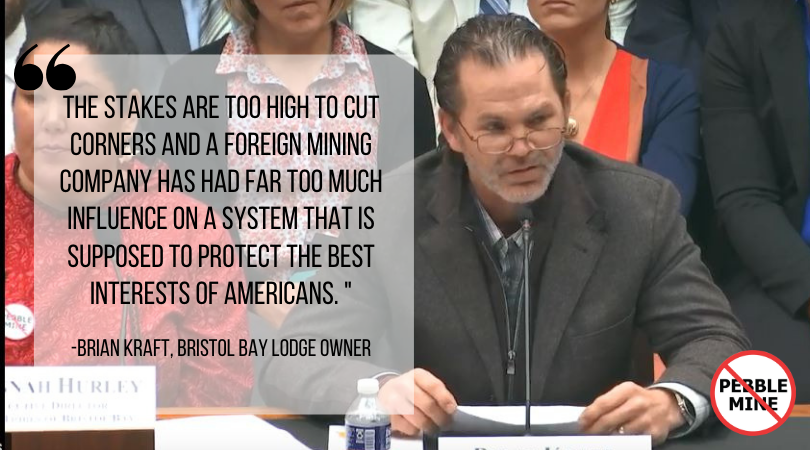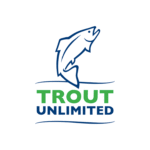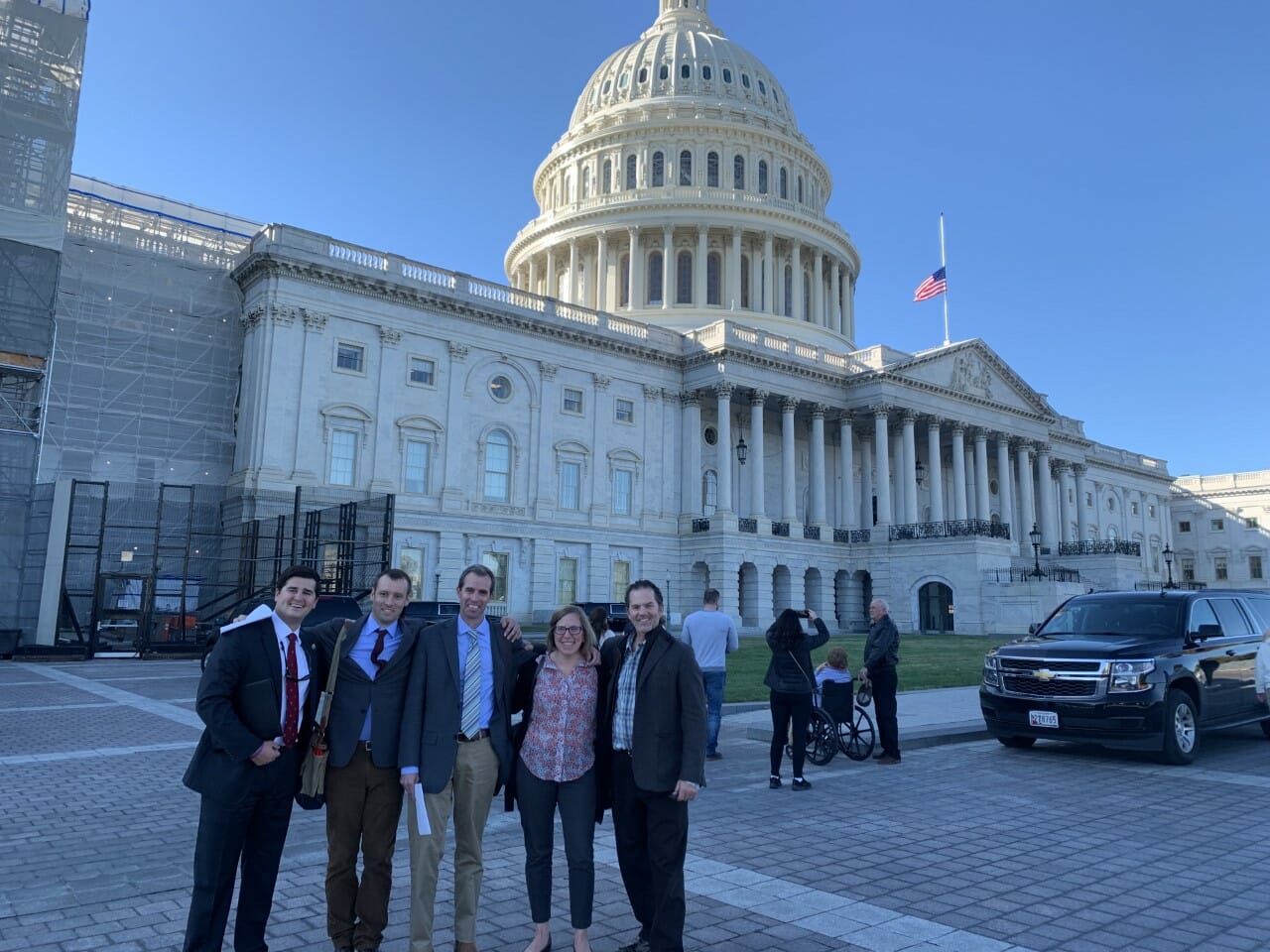By Nelli Williams
I gulped another swig of tea, willing it to be stronger than it probably was after the long red-eye flight from Anchorage, and pulled open the imposing door of the Transportation and Infrastructure hearing room in the Rayburn House Office building on Capitol Hill. It was a formal room, packed with people and bustling with conversation as witnesses, Congressmen and women and staff made final preparations for a hearing about the proposed Pebble Mine that was about to take place.
I made my way to a seat just behind the witness table, and gave Brian Kraft, owner of Alaska Sportsman’s Lodge and the witness representing the sportfishing community, a squeeze on the shoulder that translated to, “Go get ’em!”
After working alongside businesses, tribes and other Alaskan leaders for more than 10 years to safeguard Bristol Bay, I felt the ginormousness of this moment. While I was a bit anxious on how the hearing would go, I was confident in the witnesses at the table advocating for the special, fish-filled area so close to the hearts of so many. Their depth of knowledge, experience and passion for Bristol Bay is unparalleled. It was gratifying to see Congress paying attention to an issue that so many people across Alaska and the country care deeply about.
The TU team had spent the past several weeks supporting Brian as he prepared for his testimony as he simultaneously said farewell to the final guests of the season and buttoned up his lodge for the winter … none of them small feats. Intertwined with the personal stories he shared of his history in Bristol Bay, he peppered the committee with facts of the importance of the sportfishing industry in the region, the benefits of tourism, and the immediate impacts that Pebble would have on his business and many others.
Brian, along with Alannah Hurley, director of United Tribes of Bristol Bay, Mark Niver a second-generation commercial fisherman, Anisa Costa, sustainability director for Tiffany & Co., Richard Borden and geologist and owner of Midgard Environmental Services LLC, as well as former EPA Region 10 Administrator, delivered a powerful message to Congress.

They explained a long list of reasons why Bristol Bay is too special to be threatened by a mine as big and problematic as the proposed Pebble Mine. They highlighted the numerous places the environmental review of the mine is completely off the track. Finally, they underscored the reasons that Pebble’s current plan is bogus and doesn’t pass economic or scientific sniff tests.
The hearing went for more than two and a half hours, with some fiery questions and responses. I think many of the Alaskans were surprised by the party polarization in the room. In Alaska, there are many folks on both sides of the political aisle that agree Pebble shouldn’t be built in Bristol Bay. We hope that Congress will come to see it that way too.
After the hearing we were honored to team up with our partners at Orvis to meet with other senators and representatives about the widespread deficiencies in Pebble’s review and why sportsmen and women around the country, as well as businesses like Orvis care so much about protecting the region for future generations to use and enjoy. After reading the report that the Pebble Partnership spends almost $1 million a quarter on lobbying decision makers in D.C., I am glad we were there to counter the fabrications that the Pebble Partnership continues to spread on the Hill.
Our meetings with Brian, Orvis and TU’s Government Relations team yielded productive conversations that reiterated the fact that sport anglers aren’t shying away in this fight. We are beginning to get the attention of Congress, but there is more to do.
Congress needs to hold the Army Corps of Engineers and Pebble accountable. Washington, D.C., needs to understand that the Pebble Partnership, and their highly-paid consulting companies, do not represent the best interests of Alaskans and that the “this mine will create jobs” and that “the debate is now over” when it comes to Pebble and harm to salmon messages are flat out wrong.
As I boarded my return red-eye flight back to Anchorage, I took a deep breath with a renewed sense of resolve in our efforts to safeguard Bristol Bay’s wild landscape and important fisheries. Together, along with local partners and anglers across the country, we’ve come a long way but there is a lot more progress we need to make. I remain confident that together we’ll prevail, but this is a marathon, not a sprint, and we are settling into the toughest part of the race.
We’ve been asking the TU family to double down with us and keep focused on the finish line.
Please write and call your senators and representatives and tell them that across the country, anglers oppose the proposed Pebble Mine and want Bristol Bay to continue to thrive. If you’ve already done that, consider supporting the fight in other ways. It’s up to all of us to ensure that we reach the finish line, with protections in place for Bristol Bay so that projects like Pebble never have another opportunity to ruin this special place.
Until then, we will continue to deliver local voices like Brian’s to decision makers, ensure that anglers are represented fairly in efforts to stop Pebble, and continue to do everything in our power to make sure that Pebble is halted in its tracks, no matter how much caffeine is required.
Nelli Williams is the director of the TU Alaska Program.



